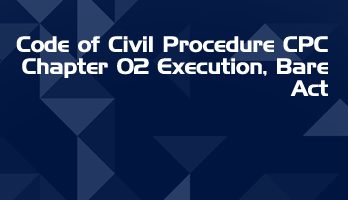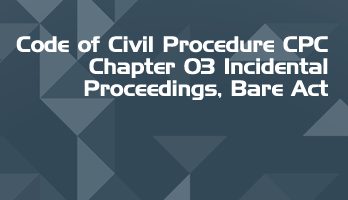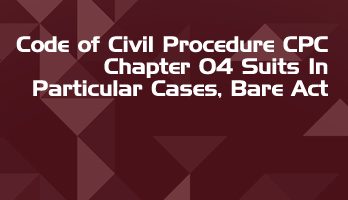A 'Bare act' is the actual legislation passed by the Parliament of India. Generally, an act sets out the high level legal and policy principles applicable to the subject matter of the law.
Most acts are accompanied by 'subsidiary legislation' such as rules, regulations, notifications and orders; which address the actual implementation detail of the act.
Free Full Course Available on LawMint's YouTube Channel
How to Land Your Dream LLB Internship in a Top Law Firm
- Part 1 - Introduction
- Part 2 - Internship Planning
- Part 3 - Internship Research
- Part 4 - Building Your Profile
- Part 5 - The Email
- Part 6 - The Resume
- Part 7 - The Cover Letter
- Part 8 - The Interview
- Part 9 - Self Development
Practical and comprehensive course, with real examples and step-by-step analysis of the complete internship application process. Check out LawMint's YouTube channel now!
Indian Divorce Act, 1869
Chapter VIII – Damages and Costs
Section 34 – Husband may claim damages from adulterer
Any husband may, either in a Petition for dissolution of marriage or for judicial separation, or in a Petition to the District Court or the High Court limited to such object only, claim damages from any person on the ground of his having committed adultery with the wife of such Petitioner. Such Petition shall be served on the alleged adulterer and the wife, unless the Court dispenses with such service, or directs some other service to be substituted. The damages to be recovered on any such Petition shall be ascertained by the said Court, although the respondents or either of them may not appear. After the decision has been given, the Court may direct in what manner such damages shall be paid or applied.
Section 35 – Power to order adulterer to pay costs
Whenever in any Petition presented by a husband the alleged adulterer has been made a co – respondent, and the adultery his began established, the Court may order the co – respondent to pay the whole or any part of the costs of the proceedings: Provided that the co – respondent shall not be ordered to pay the Petitioner’s costs –
- if the respondent was, at the time of the adultery, living apart from her husband and leading the life of a prostitute, or
- if the co – respondent had not, at the time of the adultery, reason to believe the respondent to be a married woman. Power to order litigious intervenor to pay costs. Power to order litigious intervenor to pay costs. – Whenever any application is made under section 17, the Court, if it thinks that the applicant had no grounds or no sufficient grounds for intervening, may order him to pay the whole or any part of the costs occasioned by the application.
Important Central Acts in Regional Languages
Legislative department website also features regional language versions of several important Central Acts.
Free Full Course Available on LawMint's YouTube Channel
How to Land Your Dream LLB Internship in a Top Law Firm
- Part 1 - Introduction
- Part 2 - Internship Planning
- Part 3 - Internship Research
- Part 4 - Building Your Profile
- Part 5 - The Email
- Part 6 - The Resume
- Part 7 - The Cover Letter
- Part 8 - The Interview
- Part 9 - Self Development
Practical and comprehensive course, with real examples and step-by-step analysis of the complete internship application process. Check out LawMint's YouTube channel now!












